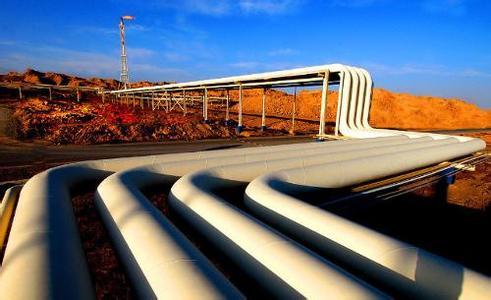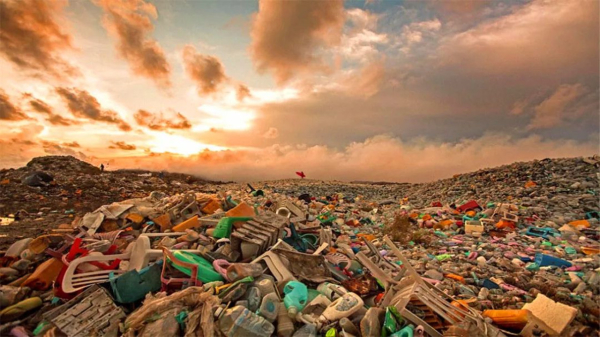The Russian-Uzbekistan conflict triggered the energy crisis
On February 24, 2022, the Russian-Uzbekistan conflict, which has lasted for eight years, suddenly escalated. Subsequently, the western countries began to impose severe sanctions on Russia, which led to the immediate plunging of the world into multiple crises. At the beginning of the escalation of the conflict, the global energy crisis broke out. Among them, the energy crisis in Europe is the most significant. Before the escalation of the Russian-Uzbekistan conflict, European energy was heavily dependent on Russian exports. In March 2022, under the influence of the Russian-Uzbekistan conflict, inflation and other multiple factors, the European energy crisis erupted, and many important energy commodity price indicators such as international oil price, European natural gas price, and electricity price of major European countries soared, and reached the peak in the first ten days of the month.
The European energy crisis, which has not yet been resolved, poses a huge challenge to European energy security, seriously interferes with the process of energy transformation in Europe, and causes a great disturbance to the development of European chemical industry.
International oil and gas prices rose sharply
One of the direct consequences of the Russian-Uzbekistan conflict is that the oil and gas market in 2022 will be like a “roller coaster”, with ups and downs throughout the year, profoundly affecting the chemical market.
In the natural gas market, in March and September 2022, the “disappearance” of Russian pipeline natural gas forced European countries to scramble for liquefied natural gas (LNG) in the world. Japan, South Korea and other LNG importing countries also accelerated their gas hoarding, and the LNG market was in short supply. However, with the completion of natural gas reserves in Europe and the warm winter in Europe, the global LNG price and the spot price of natural gas both fell sharply in December 2022.
In the oil market, the main players of the market are constantly moving. The OPEC+production reduction alliance led by Saudi Arabia made the first decision to increase production for the first time in two years at the regular production reduction meeting in June 2022. However, by December 2022, OPEC+has chosen to maintain the existing production reduction policy. At the same time, the United States announced the release of strategic oil reserves and reached an agreement with other OECD members to release crude oil reserves. The international oil price rose sharply to the highest point since 2008 in early March 2022, and stabilized after the overall high level consolidation in the second quarter of 2022. By the middle of June 2022, there was another wave of shock and decline, and by the end of November 2022, it fell to the level of February of the same year.
Multinational petrochemical enterprises withdraw from the Russian market
With the escalation of the Russian-Uzbekistan conflict, the large western petrochemical companies decided to withdraw from the Russian market at the sales and production levels at the expense of huge losses.
In the oil industry, the total losses suffered by the industry amounted to US $40.17 billion, of which BP was the largest. Other enterprises, such as Shell, lost about US $3.9 billion when they withdrew from Russia.
At the same time, multinational enterprises in the chemical industry also withdrew from the Russian market on a large scale. These include BASF, Dow, DuPont, Solvay, Klein, etc.
The global fertilizer crisis is getting worse
With the escalation of the Russian-Uzbekistan conflict, the price of natural gas has soared and the supply is short, and the price of synthetic ammonia and nitrogen fertilizer based on natural gas has also been affected. In addition, since Russia and Belarus are important exporters of potash fertilizer in the world, the global price of potash fertilizer also remains high after the sanctions. Shortly after the escalation of the Russian-Uzbekistan conflict, the global fertilizer crisis also followed.
After the escalation of the Russian-Uzbekistan conflict, the global fertilizer price generally remained high from late March to April 2022, and then the fertilizer crisis eased with the expansion of fertilizer production in the United States, Canada and other fertilizer producing countries. However, until now, the global fertilizer crisis has not been lifted, and many fertilizer production plants in Europe are still closed. The global fertilizer crisis has seriously disrupted the normal agricultural production in Europe, South Asia, Africa and South America, forcing the countries concerned to spend higher costs to raise fertilizer, and indirectly contributing to global inflation.
Prevention and control of plastic pollution ushers in a moment of history
On March 2, 2022 local time, at the resumed session of the Fifth United Nations Environment Conference, held in Nairobi, representatives from 175 countries approved a historic resolution, the Resolution on Ending Plastic Pollution (Draft). This is the first time that the international community has reached an agreement on curbing the increasingly serious plastic problem. Although the resolution did not put forward a specific plastic pollution prevention plan, it is still a milestone in the international community’s response to the problem of plastic pollution.
Subsequently, on November 28, 2022, representatives of more than 190 countries and regions held the first intergovernmental negotiation on plastic pollution control in Cape Ester, and the international plastic pollution control was put on the agenda.
Oil companies achieved record high profits
Due to the sharp rise in international oil prices, global oil companies once again made amazing profits in the first three quarters of 2022, when the data have been released.
For example, ExxonMobil achieved a record profit in the third quarter of 2022, with a net income of 19.66 billion US dollars, more than twice the revenue of the same period in 2021. Chevron achieved a profit of US $11.23 billion in the third quarter of 2022, close to the record profit level of the previous quarter. Saudi Aramco will also become the world’s largest company by market value in 2022.
The oil giants who make a lot of money have attracted the attention of the world. Especially in the context of the global energy transformation blocked by the energy crisis, the huge profits made by the fossil energy industry triggered fierce social debate. Many countries are planning to impose a windfall tax on the windfall profits of oil enterprises.
Multinational enterprises weigh heavily on the Chinese market
On September 6, 2022, BASF held a ceremony for the comprehensive construction and production of the first set of devices in the BASF (Guangdong) integrated base invested by BASF in Zhanjiang, Guangdong. BASF (Guangdong) integrated base has always been a focus of attention. After the first unit is officially put into production, BASF will increase the output of 60000 tons/year of modified engineering plastics, which can meet the growing demand of customers, especially in the fields of automobile and electronic products. Another set of equipment for producing thermoplastic polyurethane will be put into operation in 2023. In the later stage of the project, more downstream devices will be expanded.
In 2022, in the context of the global energy crisis and inflation, multinational enterprises continued to act in China. In addition to BASF, multinational petrochemical enterprises such as ExxonMobil, INVIDIA and Saudi Aramco are increasing their investment in China. In the face of turbulence and changes in the world, multinational enterprises have said that they are willing to become long-term investors in China and will develop steadily in the Chinese market with long-term goals.
The European chemical industry is now reducing production
In October 2022, when the price of oil and gas in Europe was the highest and the supply was the most scarce, the European chemical industry encountered unprecedented operating difficulties. The soaring energy prices have raised the production costs of European enterprises, and there is not enough energy in the production process. Some products lack key raw materials, leading to the general decision of European chemical giants to reduce or even stop production. Among them are international chemical giants such as Dow, Costron, BASF and Longsheng.
For example, BASF decided to suspend the production of synthetic ammonia and reduce the natural gas consumption of its Ludwigsport plant. Total Energy, Costron and other enterprises decided to close some production lines.
Governments adjust energy strategies
In 2022, the world will face the challenge of tight supply chain, the production capacity of parts factories will be interrupted, the shipping trade will be delayed, and the energy cost will be high. This led to the wind power and photovoltaic installation in many countries being less than expected. At the same time, constrained by the energy crisis, many countries began to seek more reliable emergency energy supply. In this case, the global energy transformation is blocked. In Europe, due to the energy crisis and the cost of new energy, many countries began to use coal as an energy source again.
But at the same time, the global energy transformation is still moving forward. According to the report of the International Energy Agency, as more and more countries begin to accelerate energy transformation, the global clean energy industry has entered a period of rapid development, and renewable energy power generation is expected to increase by 20% in 2022. The growth rate of global carbon dioxide emissions in 2022 is expected to decrease from 4% in 2021 to 1%.
The world’s first carbon tariff system came out
On December 18, 2022, the European Parliament and EU member states agreed to comprehensively reform the EU carbon market, including the introduction of carbon tariffs. According to the reform plan, the EU will formally levy carbon tariffs from 2026, and carry out trial operation from October 2023 to the end of December 2025. At that time, carbon emission costs will be imposed on foreign importers. In the chemical industry, fertilizer will become the first sub-industry to levy carbon tariffs.
JinDun Chemical is committed to the development and application of special acrylate monomers and special fine chemicals containing fluorine.JinDun Chemical has OEM processing plants in Jiangsu, Anhui and other places that have cooperated for decades, providing more solid backing for customized production services of special chemicals.JinDun Chemical insists on creating a team with dreams, making products with dignity, meticulous, rigorous, and go all out to be a trusted partner and friend of customers! Try to make new chemical materials bring a better future to the world.
Post time: Jan-28-2023



